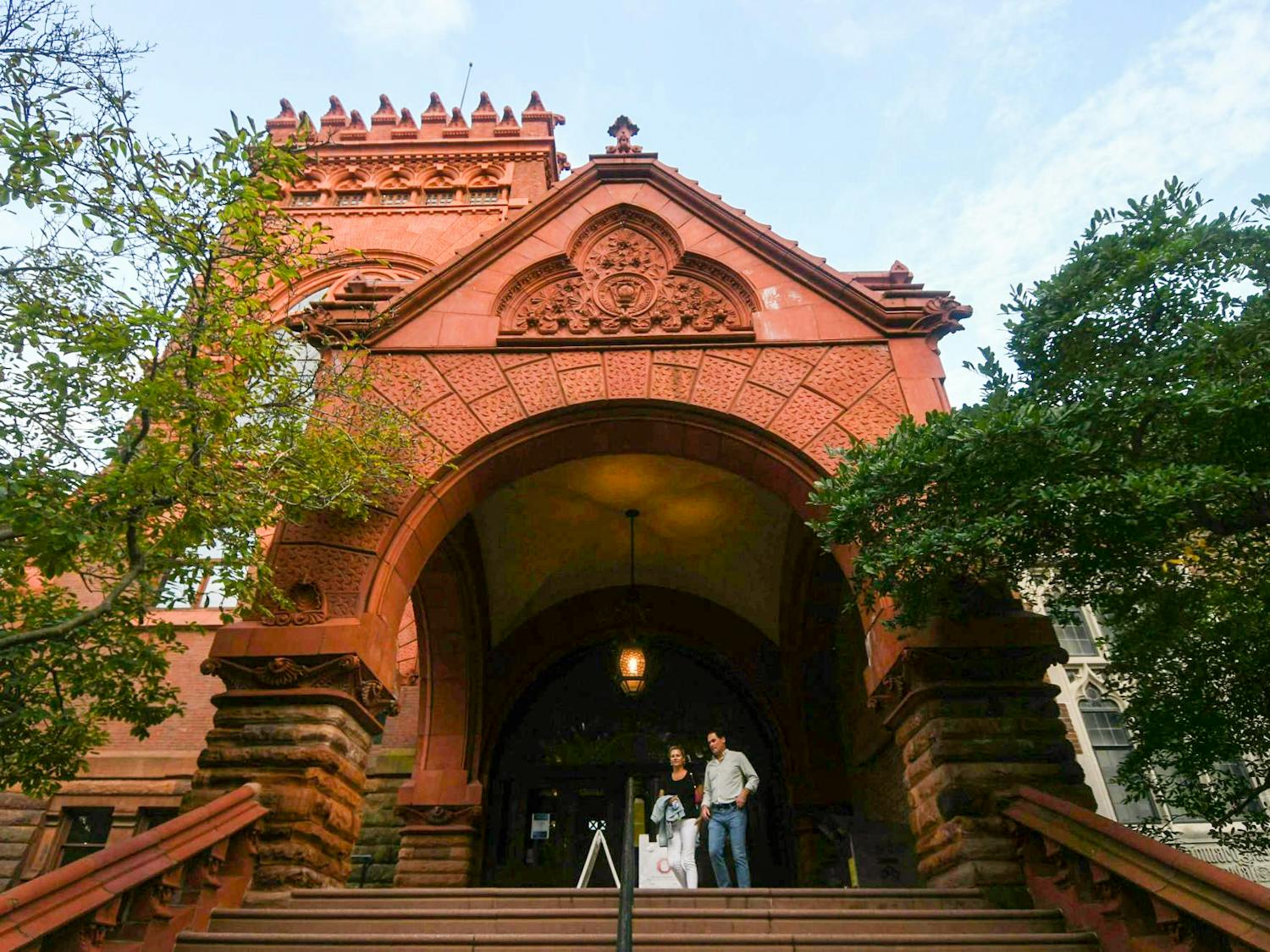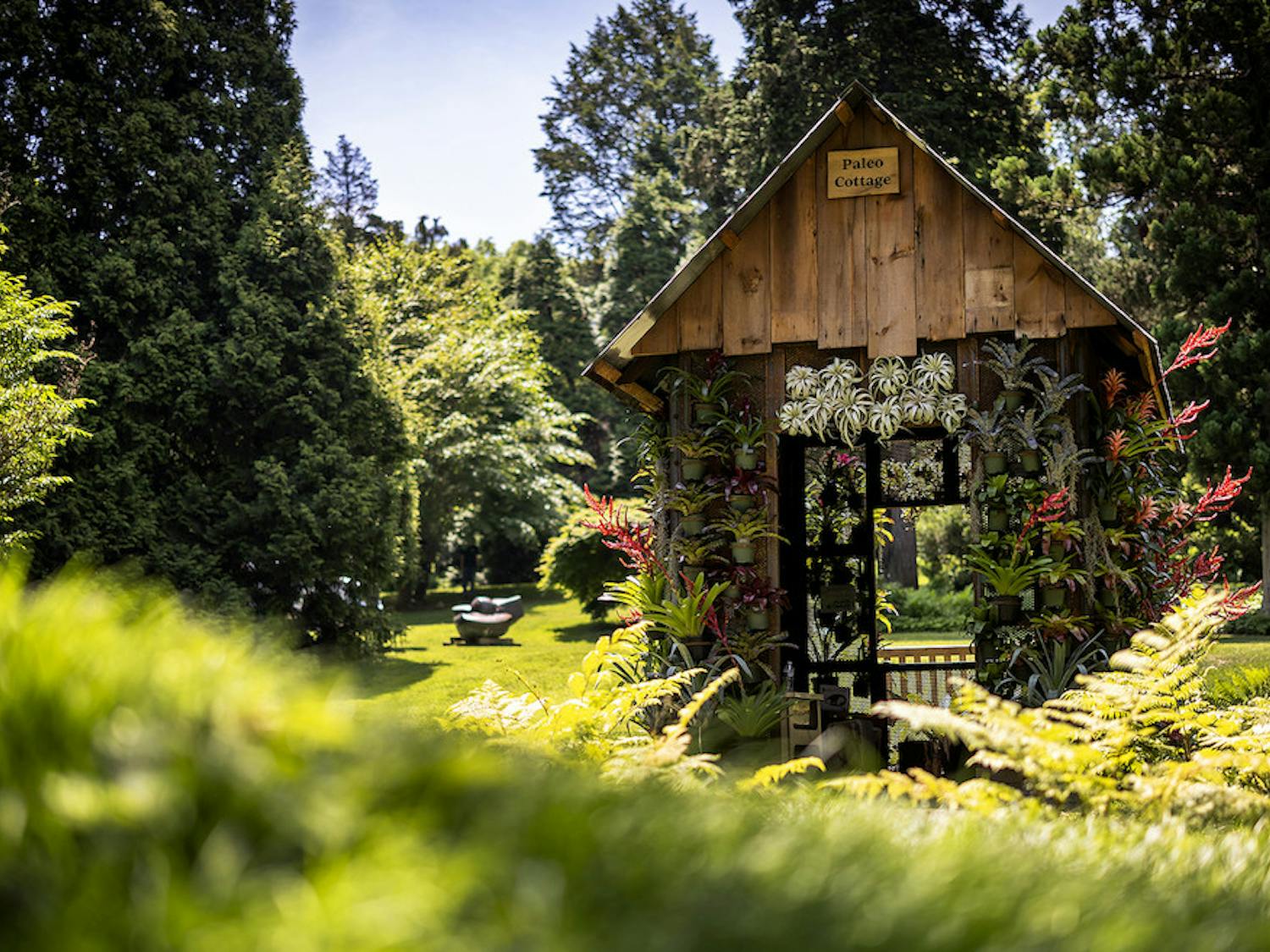Standing before a worldwide audience recently, actors Whoopi Goldberg and Ted Danson talked openly about their interracial relationship. They laughed about it and reveled in it. Mixed couples at the University don't exactly declare their love in front of the whirring cameras of television networks. It's more of a private affair. Every person interviewed for this story asked to remain nameless. They were willing to talk, some quite candidly, about the tribulations of interracial dating. But whether it was to protect themselves from disapproving grandparents or skeptical friends, their names were not to be used. By examining data from The Vision/Daily Pennsylvanian race relations poll, which suggest undergraduates are comfortable with interracial dating – 82 percent said they would date someone from another race – it seems strange that people are so quiet about it. The issue is not as easily accepted as the numbers indicate. There is still a palpable stigma, both on campus and in society at large, surrounding couples who span racial lines. Parents protest, friends snicker and strangers stare. "It was next to impossible [to date someone of another race] here, and that is why we broke up," said one white College sophomore who had been dating her black boyfriend for nearly a year. Their relationship, she said, was hampered by a black community which steadfastly refused to accept their relationship. "They would tell him that he would never date a black girl at Penn if he went out with me," she said. "He ended up having to make the choice between the black community and me. He's still not accepted." According to the poll, black students were least likely of the races to approve of interracial dating – 62 percent said they would date someone of another race. Eighty-two percent of Asians, 84 percent of whites, and 83 percent of Latinos said they would be willing to have a mixed relationship. The College sophomore said although her white friends did not deliberately lobby against her relationship, their remarks created uneasiness. "They would ask me whether it was true what they say about black guys," she said. "Jungle fever this and jungle fever that." It's the little jabs which often hurt the most. They seem to reflect attitudes otherwise hidden behind gilded statistics. Even today, a black and white couple is not "normal," said a white College senior who is now dating a black man. Words like "multicultural" sound good, but they mean little in practice, she said. "We talk about diversity and what a great thing it is," she added, "but this campus is so polarized." She said one of her friends warned her not to get involved with a black person, because it just "wasn't worth it." The College senior said there is a prevalent "not-me" attitude among white students. "I'll bet that 82 percent approve of interracial dating as long as it is not them," she added. Clearly, the impersonal nature of a telephone poll makes it easy for respondents to be liberal with their attitudes. But when the issues get personal, the decisions – and consequences – of a mixed relationship get harder. They aren't answered with a simple "yes" during a short poll. They are solved through love and a bit of resiliency. One mixed couple said they don't listen to what others say about them. "If the relationship is strong enough, it's going to work anyway," said one white College senior who has been dating her black boyfriend for three years. She said she has had few problems with her biracial relationship, saying most of her friends accept it. "We can go out with friends of ours who are white and friends who are black. It's really no problem." He said he isn't affected by racial issues. "I love black people and I love white people," he said. "I'm not trying to do this to rebel against my race. "I don't particularly go to black functions and I don't particularly go to white functions." Most of those interviewed said dating someone of another race often results in choosing between different social scenes. The College sophomore who said the black community came between her and her boyfriend said this has become painfully clear in recent months. She still attends "black parties" and though she is "a little more accepted than last year," she participates in something that she "will never understand." And likewise, she said she realized that "black people will never be fully accepted [at] a white party." But this has not deterred her from interacting with people of different races. She helped found ICED, the Interracial Coalition to End Discrimination. Its members, who come from all racial backgrounds, hope to make socializing with others a "cool thing to do." "People find that it is wrong at Penn to mix," she said. "It's not exactly discrimination, and it just doesn't have to be that way."
The Daily Pennsylvanian is an independent, student-run newspaper. Please consider making a donation to support the coverage that shapes the University. Your generosity ensures a future of strong journalism at Penn.
DonateMore Like This
Penn hosts panel with Barack Obama’s former speechwriters
By
Luke Petersen
·
31 minutes ago
CHOP expands pediatric care facilities with $125 million donation
By
Saanvi Ram
·
35 minutes ago
Korea Taqueria opens new location at Franklin’s Table
By
Tanvi Shah
·
37 minutes ago








